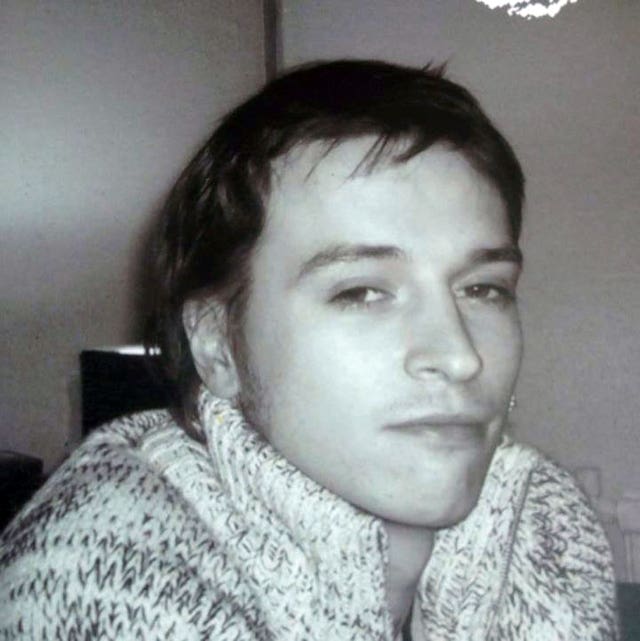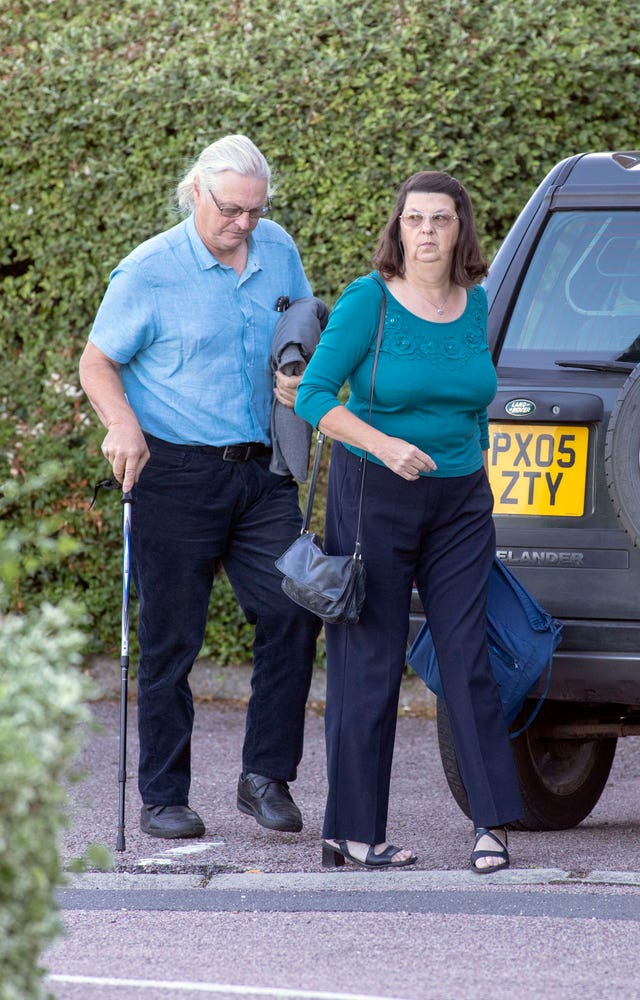Neglect contributed to death of epileptic man restrained in police van – jury
Duncan Tomlin died in hospital two days after he fell unconscious during a struggle with officers in Haywards Heath.

Neglect contributed to the death of an epileptic man after he was restrained face down in a police van five years ago, an inquest jury has found.
Duncan Tomlin, 32, died in hospital two days after he fell unconscious while being detained during a struggle in Haywards Heath in July 2014.

He was handcuffed behind his back, placed in leg and thigh restraints and held face down on the floor before being carried into a police van with his legs curled up behind him.
Officers continued to restrain him face down on the floor in the van before he collapsed.
The Crown Prosecution Service (CPS) twice decided not to prosecute the Sussex Police officers involved over the death and four were cleared of allegations of gross misconduct at a force disciplinary hearing.
A jury of six women and four men returned a narrative conclusion at West Sussex Coroner’s Court on Tuesday, finding the medical cause of his death was “cardio respiratory failure due to both restraint in a prone position and the effects of cocaine and methadone”.
They said there was “no urgency” by officers to move Mr Tomlin, adding: “Duncan should have been moved on to his side earlier.”
The jury found police training relating to positional asphyxia was “inadequate” and concluded: “The death was contributed to by neglect.”
Relatives and friends of Mr Tomlin – who have waited nearly five years for answers over his death – hugged after the ruling was read out.

Addressing his family, she said: “Our thoughts are with you as you continue to grieve his loss and I hope this inquest, which has gone on for some time, has brought you some peace.”
After the hearing, Selen Cavcav, from charity Inquest, which works with families after a death in custody, said: “We would ask the CPS to reconsider the decision not to prosecute any of the officers involved.
“Duncan’s family listened to almost four weeks of evidence and the police lawyers have tried to concentrate on Duncan’s drug taking in order to support their narrative that Duncan was responsible for his own death.
“So this conclusion was very important for the family and we welcome it.”
The inquest heard Mr Tomlin had been drinking and had taken drugs before the late-night disturbance and officers restrained him after he ran off.
Sergeant Christopher Glasspool, one of five officers called to give evidence, told jurors Mr Tomlin had been “screaming and shouting incoherently” but then fell motionless as he lay face down on the floor with his hands cuffed behind his back.
The police officer of 17 years held back tears as he said: “When I didn’t get a response I knew there was a serious problem.”
In footage of the arrest played in court, the officers could be seen trying to rouse Mr Tomlin while Sgt Glasspool shouted “Dominic” – believing that was his name – in a bid to get his attention.
Sgt Glasspool said: “I was getting very distressed. This lad was dying in front of me. The ambulance was too far away.
“I don’t like to think about it. It was so traumatic and everything we did wasn’t working.
“I still remember the day very well, if I’m honest I will never forget it.”
The court heard that four minutes passed between the time Mr Tomlin appeared to fall unconscious and when he was moved out of the van.
Mr Tomlin was in the van for just under seven and a half minutes before Sgt Glasspool and another officer administered CPR.
An ambulance was called but stood down when it was decided it would be quicker to take him straight to hospital, before being called back again shortly afterwards and a doctor rushed to the scene.
Positional asphyxia, where someone suffocates because of the position they are in, drugs and alcohol played a part in the death, pathologists said.
In August Sgt Glasspool, Pc Jamie Jackson and Pc Daniel Jewell were cleared of gross misconduct allegations at a disciplinary hearing.
Pc Russell Watson was also cleared of all allegations at a private hearing that month while Pc Alexander Bennett resigned from the force in 2017.
Sgt Glasspool told the jury he was “closely and carefully monitoring” Mr Tomlin at all times, denying kneeling on his back, saying he was only using his shins to apply pressure to his shoulder blades.
But he admitted some of his actions went against his training, adding: “I was panicking but I was still making rational decisions.”
He dismissed suggestions that officers took too long to administer CPR after realising Mr Tomlin was not responding.
Sgt Glasspool also denied knowing at the time that Mr Tomlin had epilepsy – despite claims that other officers had been informed.
During questioning by Jude Bunting, the barrister for Mr Tomlin’s family, Sgt Glasspool also denied exaggerating his evidence to justify his conduct.
He insisted he did not smirk or smile while restraining Mr Tomlin, after scrutiny of a facial expression captured during footage of the incident.





